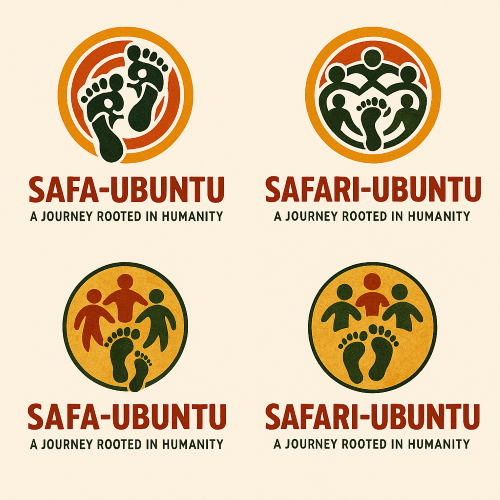#ubuntusafacom #ubuntusafacom
What Does "Ubuntu" Mean?
At its core, Ubuntu is often translated as:
"I am because we are" or "A person is a person through other people."
In various African languages:
In Zulu and Xhosa (South Africa), Ubuntu means humanness or human kindness.
In Shona (Zimbabwe), the concept is similar to "unhu", referring to good character.
In Bantu languages across Africa, variations of Ubuntu emphasize collective responsibility, empathy, and communal living.
Ubuntu in the Hearts of African Forefathers
To the ancestors and elders, Ubuntu was not just a belief—it was a lifestyle. It governed how people:
Treated neighbors, strangers, and even enemies.
Resolved conflict through dialogue rather than violence.
Shared resources like food, water, and land.
Raised children as a community (“It takes a village to raise a child” is rooted in Ubuntu).
#ubuntusafacom #ubuntusafacom
Celebrated life through rituals and togetherness.
Ubuntu was the spiritual and social glue that held African societies together before colonization disrupted many indigenous systems.
Key Principles of Ubuntu:
Community over individualism – You thrive because your community thrives.
Mutual care and respect – Everyone matters and contributes.
Forgiveness and reconciliation – A cornerstone of post-apartheid South Africa.
#ubuntusafacom #ubuntusafacom
Interconnectedness – What affects one affects all.
Leadership through service – True leaders serve their people, not rule over them.
Ubuntu in Modern Times
Ubuntu is not just ancient history. It inspired:
Nelson Mandela and Desmond Tutu, who used it to heal and rebuild South Africa.
Peace-building efforts in Rwanda after the genocide.
Modern African values in community development, social enterprise, and education.
A Quote from Archbishop Desmond Tutu:
“Ubuntu is very difficult to render into a Western language. It speaks of the very essence of being human... It is not, ‘I think therefore I am.’ It says rather: ‘I am human because I belong, I participate, I share.’
#ubuntusafacom #ubuntusafacom
#ubuntusafacom #ubuntusafacom
What Does "Ubuntu" Mean?
At its core, Ubuntu is often translated as:
"I am because we are" or "A person is a person through other people."
In various African languages:
In Zulu and Xhosa (South Africa), Ubuntu means humanness or human kindness.
In Shona (Zimbabwe), the concept is similar to "unhu", referring to good character.
In Bantu languages across Africa, variations of Ubuntu emphasize collective responsibility, empathy, and communal living.
Ubuntu in the Hearts of African Forefathers
To the ancestors and elders, Ubuntu was not just a belief—it was a lifestyle. It governed how people:
Treated neighbors, strangers, and even enemies.
Resolved conflict through dialogue rather than violence.
Shared resources like food, water, and land.
Raised children as a community (“It takes a village to raise a child” is rooted in Ubuntu).
#ubuntusafacom #ubuntusafacom
Celebrated life through rituals and togetherness.
Ubuntu was the spiritual and social glue that held African societies together before colonization disrupted many indigenous systems.
Key Principles of Ubuntu:
Community over individualism – You thrive because your community thrives.
Mutual care and respect – Everyone matters and contributes.
Forgiveness and reconciliation – A cornerstone of post-apartheid South Africa.
#ubuntusafacom #ubuntusafacom
Interconnectedness – What affects one affects all.
Leadership through service – True leaders serve their people, not rule over them.
Ubuntu in Modern Times
Ubuntu is not just ancient history. It inspired:
Nelson Mandela and Desmond Tutu, who used it to heal and rebuild South Africa.
Peace-building efforts in Rwanda after the genocide.
Modern African values in community development, social enterprise, and education.
A Quote from Archbishop Desmond Tutu:
“Ubuntu is very difficult to render into a Western language. It speaks of the very essence of being human... It is not, ‘I think therefore I am.’ It says rather: ‘I am human because I belong, I participate, I share.’
#ubuntusafacom #ubuntusafacom
0 Kommentare
0 Geteilt
395 Ansichten
0 Bewertungen


